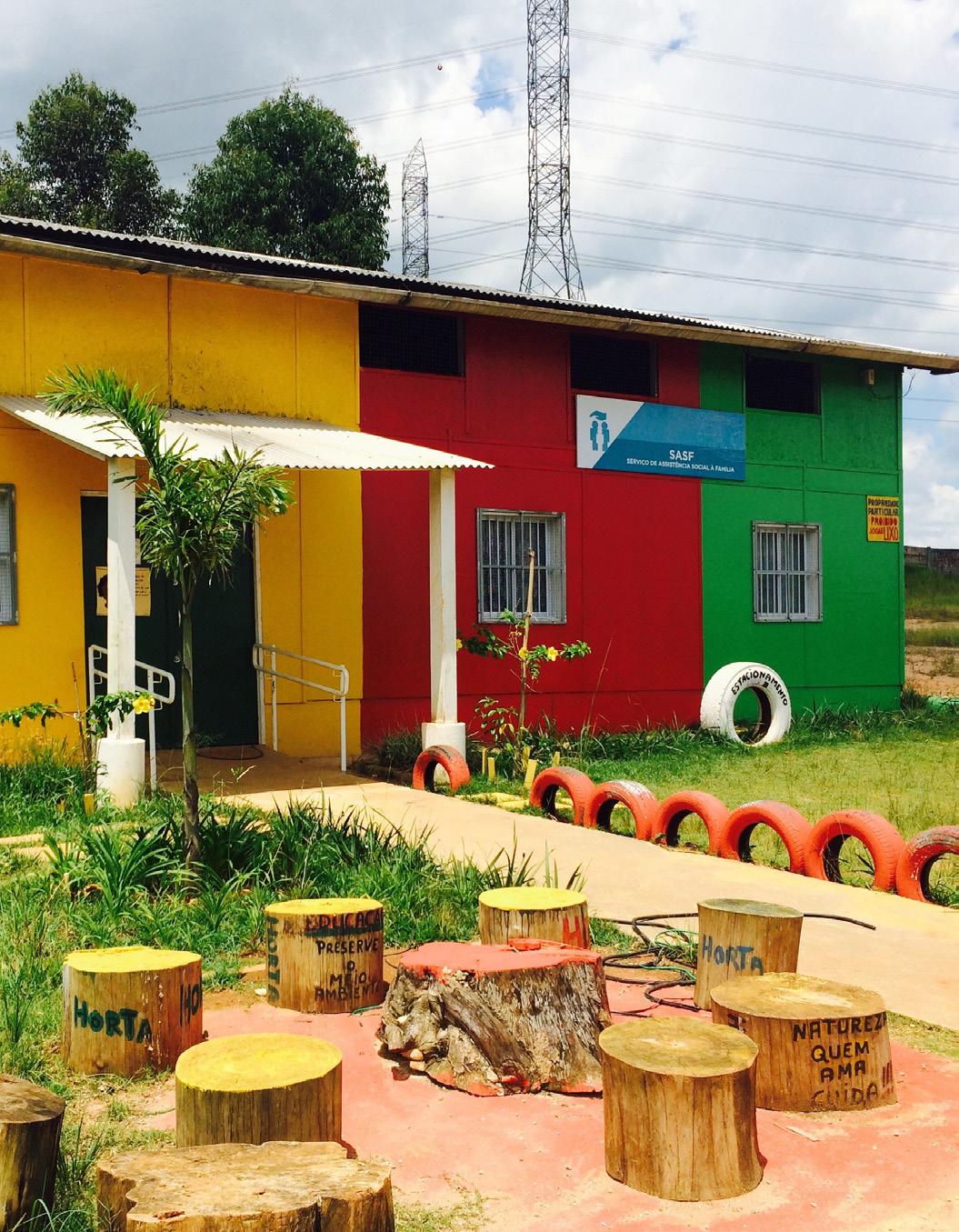
1 minute read
Instituto Anchieta Grajaú Interview Summary
To gain an understanding of Ocupação Anchieta from a different perspective, students also interviewed IAG, the owners of the land. Similar to the clientpartner interview, the main purpose for this conversation was to gain an understanding of the Institute’s history and their past, present, and future goals for the land. The interview lasted one hour. U-M faculty members, Ana Paula Pimentel Walker and María Arquero de Alarcón, were invited by the Institute to talk about the student project development for the informal settlement.
During this meeting the director of IAG, Celso Garbarz informed us of his concerns related to the current population’s health and safety conditions. He explained that even though Grajaú has approximately 500,000 inhabitants, the current health facilities can only serve 10,000 people.
43 (left) Instituto Anchieta Grajaú Social Assistance Building.
Garbarz affirmed that the non-profit organization is seeking ways to maintain the current favorable relationship with the neighborhood association in Ocupação Anchieta. He is also highly concerned about the negative environmental impact from the lack of services like sewage, waste collection, and greywater disposal. According to IAG, these environmental impacts can be difficult to solve with the current high population density in Ocupação Anchieta and wonders if they may need to reduce the number of families living there.
Given these concerns, IAG has sought out the help of the Belgian institution, Leuven University, to propose housing, infrastructure, and permaculture recommendations in this area. This collaboration started three weeks before our arrival, when three students traveled to the site. The students lived on IAG grounds for two months, engaging with the community in interviews, creating surveys, and using other methods to understand the current conditions. Instituto Anchieta Grajaú envisions to develop the area that Ocupação Anchieta occupies as a temporary housing settlement with permaculture, farming, and other workshops that will serve to professionalize adults so that they get training, find, jobs and move out, leaving room for new families. Funding is currently not available for such a project. Furthermore, when Ocupação Anchieta residents first occupied the area, their intention was to permanently stay there. In fact, many coordinators would like a permanent home with tenure security. Overall, Taubman College Team had an important interview with IAG to learn more about the actions they are planning and the community as a whole.






